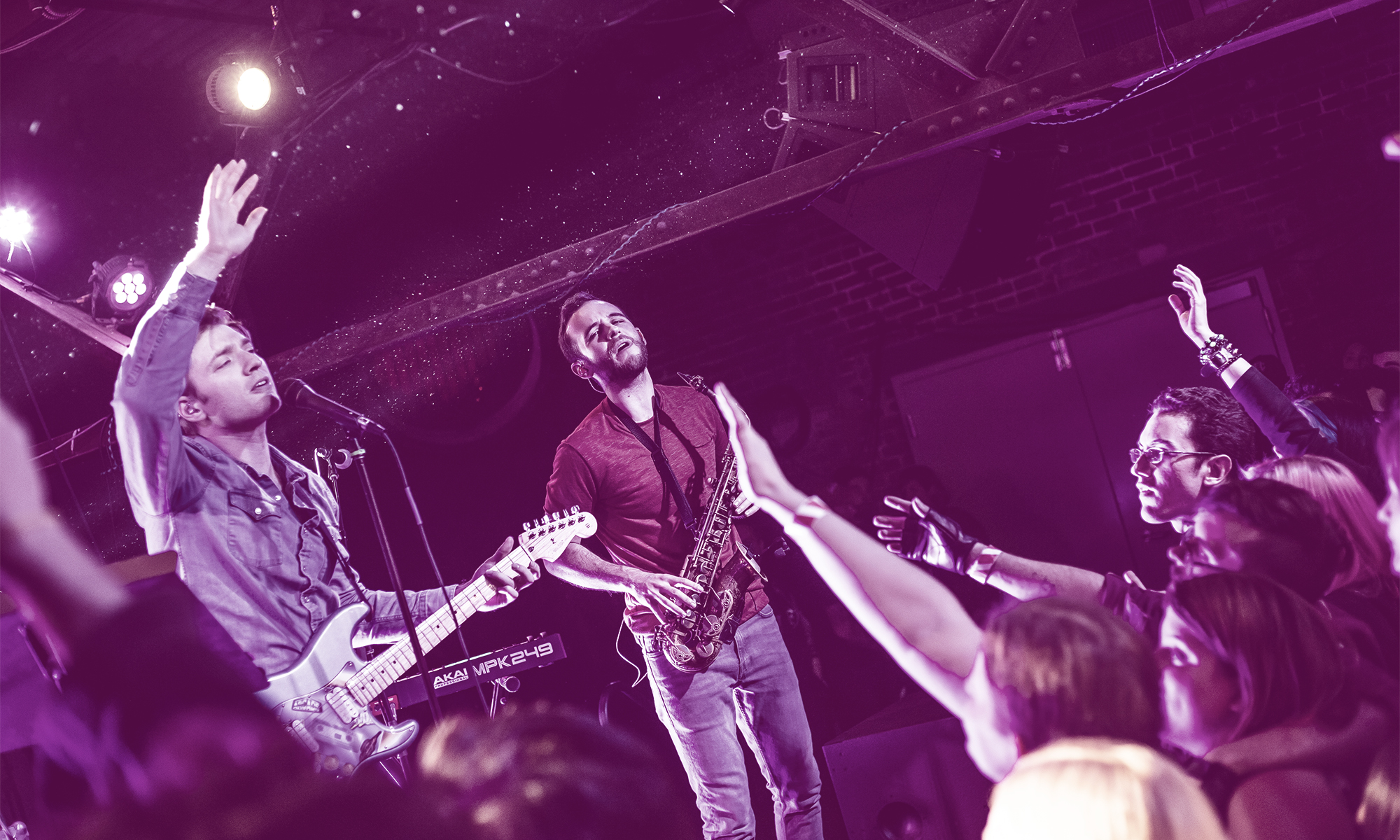Initially posted for Nippertown
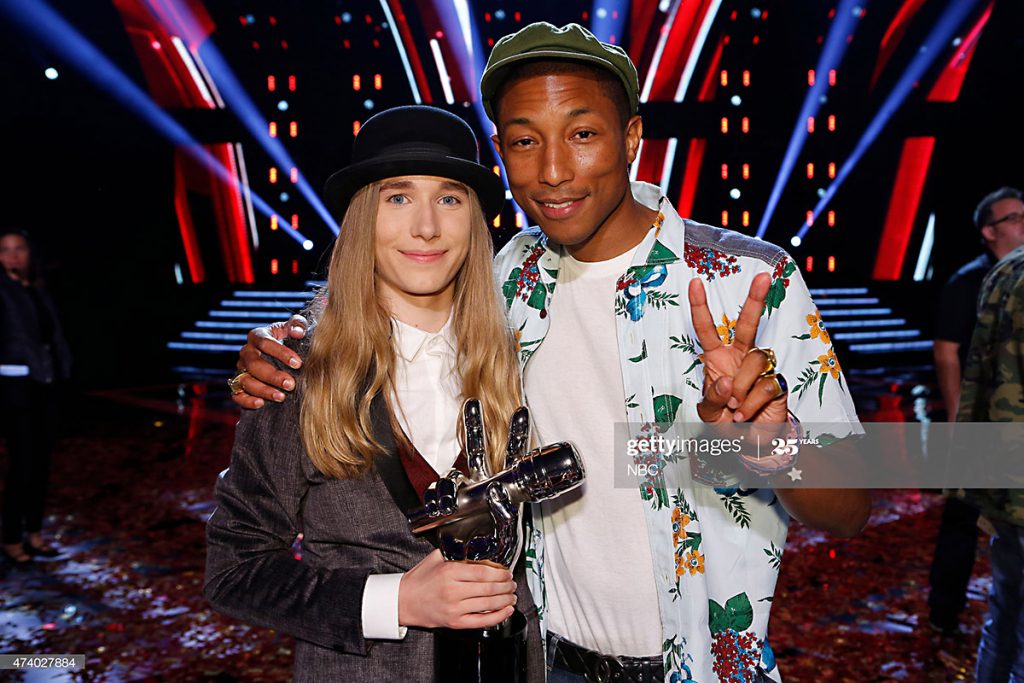
Based out of Fultonville, Sawyer Fredericks and his haunting singing and songwriting skills have been in the nooks and crannies of “the 518” for a while. He was singing open mics and farmer’s markets long before he earned a four-chair turn during his “I’m a Man of Constant Sorrow” blind audition on season 8 of The Voice. Several weeks before he later claimed the prestigious title of the winner that season, being the youngest one to win at that point at only the age of 16, he repeatedly achieved spots in the Top 10 of the iTunes charts. His vocal prowess led to his strong covers of Al Green’s “Take Me to the River,” Goo Goo Dolls’ “Iris,” May Erlewine’s “Shine On,” Buffalo Springfield’s “For What It’s Worth,” and Christina Perri’s “A Thousand Years” taking top ten spots in the charts in positions ten, four, three, three, and two respectively. Republic Records later stated that Sawyer broke many sales records for The Voice, selling nearly one million downloads on iTunes during his run on the show.
Since then, Sawyer has been carving out his own path in indie music in a genre self-described as “free range folk.” Like alchemy, Fredericks fuses elements from blues, roots rock, jazz, and folk to form his own distinct sound. Give a quick listen to this gentleman, and let Fredericks’ sand-textured vocals and honest lyrics whisk you away to the illusion of a simpler time.
Elissa Ebersold: Bit of an ice breaker: If you were to pick your ultimate tour lineup—Whether they’re co-headlining, opening for you, or even if for some reason you wanted to open for them, which bands would be on tour with you?
Sawyer Fredericks: I would say I’d love to open for Creedence. I’d love to tour with KALEO. Also Ray LaMontagne. I’d like to be on tour with him. I’d love to do some co-bills with The Bones of J.R. Jones. That’s a great artist as well. That’s most of them. And Ben Howard! Jack Johnson as well.
EE: All great and understandable choices. Have you seen KALEO live yet? They’re one of my favorites.
SF: Not yet, no. I hear they’re really good live.
EE: I’ve seen them…five times. I think.
SF: They’re good?
EE: They’re a little stoic on stage but they’re absolutely flawless otherwise.
SF: He’s [JJ Juliusson] got like, a real voice that, like, is there when he’s performing live as well. Like, oh shoot that sounds amazing.
EE: He’s got that really natural, husky growl thing going on that just. I don’t know how it…it’s so much more enveloping when it’s live. If that makes sense.
SF: That’s understandable. I’ve gotten the same kind of information about my voice when it’s live. It’s more powerful live.
EE: I remember saying once to your mother […] that your style reminded me of KALEO. And she said, “They sing ‘Broken Bones’ right?” and I got really excited because I was like, “Finally! Someone who knows them!” It was a really exciting moment.
SF: They’re a cool band.
EE: How did you find your calling as an Americana folk musician?
SF: I think that’s kinda just happened over time growing up in the kind of music I’ve been around and listening to. Just starting off with open mics and listening to all these folk singers at these open mics, and just writing stuff. It’s what I was drawn to from the very beginning and it’s what I‘ve enjoyed the most.
EE: I’ve read you have influences in CCR, Ray LeMontagne and other folk-rock roots. What other music did you listen to growing up that helped you find and shape your own sound?
SF: I listened to a wide range of music. A couple of names off the top of my head from my dad’s side that he was listening to that I heard—Alan Jackson, Bob Seger, [LAUGHS] Ahhhh…Why is it always hard to remember these? I had a lot of KT Tunstall, Dido. Imogen Heap, I’ve been listening to a good amount lately. Those are more female artists that I listen to. Florence and the Machine. Brandi Carlile.
EE: Who would surprise us as someone on your playlist or list of influences?
SF: Tool. I listen to quite a bit of Tool actually. Other than that, I don’t really think anyone would really be surprised. After I say that I listen to Tool, anything after that wouldn’t be a surprise. [LAUGHS].
EE: Did you see the tribute band performance [at Upstate Concert Hall] right before we went into quarantine?
SF: No, I didn’t. I saw them in New York City though. Some type of thing on The Island. The loudest concert I’ve ever been to […] I don’t know how the Tribute would be, but Maynard [James Keenan] is an amazing vocalist and it’s awesome hearing him in person. But definitely loud.
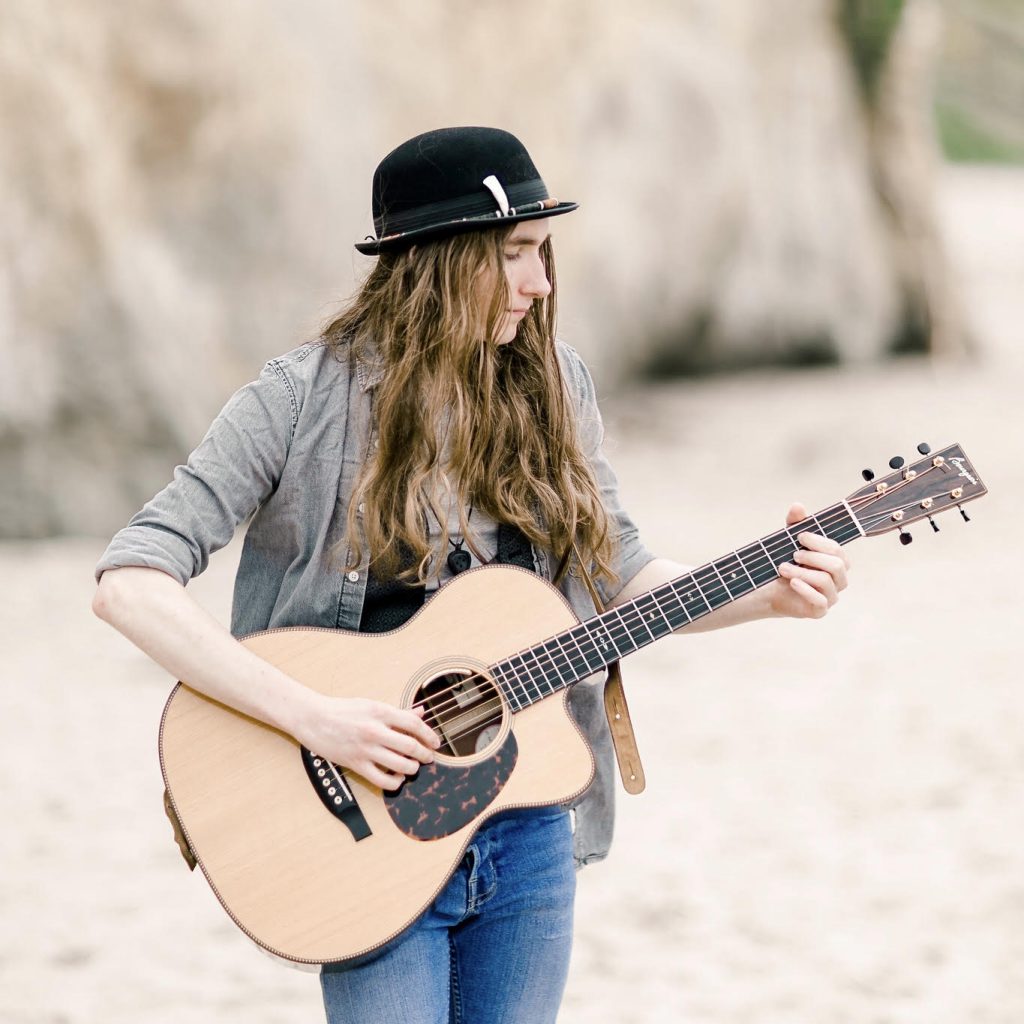
EE: You were born and raised on a farm, not that they are mutually exclusive, but what is something you learned from being on a farm that has carried through into the way you live as a full time, touring and career musician?
SF: That’s definitely a difficult one. I would just say that stuff I’ve been taught about living on a farm is appreciating more physical labor. While I’m touring, I don’t feel like I’m working that much because I’m not doing that much. So it’s also very rewarding that when I get back [to the farm] I get to enjoy that type of lifestyle.
EE: How often do you go back to the farm?
SF: At least once a week.
EE: What do you do when you’re on the farm? I’m born and raised in the suburbs so I have no idea what the life and work is like.
SF: It depends on what season it is. The summer is hay season so we’re doing hay bales and putting them in the hayloft and stacking them. During the winter, we have all the cows indoors and we have to feed them and muck stalls which is [EXAGGERATED THUMBS UP] super fun.
EE: Do you have an animal that you enjoy spending time around more than the others?
SF: I mean, piglets are great! […] They’re quite adorable. We have twenty-six right now.
EE: How many animals do you have total?
SF: We have a lot right now. We just got a bull. We got a bull because we didn’t want to be using artificial insemination. And the bull got all of the cows pregnant.
EE: Oh no.
SF: [LAUGHS] We have tons of calves right now, so it almost doubled our herd. But I think we have like fifty-something [cows].
EE: That sounds like quite a handful.
SF: Yeah we have fifty-something cows. Twenty-six piglets. And two sows, which are female pigs.
EE: As I understand it, The Voice team scouted you. Americana is not typically a sound that finds itself on the radio very often, so what inspired you to further audition for The Voice, a show typically flanked by viewers, and listeners of, of the Top 40, even after being scouted?
SF: Well, yeah they scouted me on YouTube from my performances at farmer’s markets. And when they invited me out to do what I guess is “after the open call” auditions. At first, I said no because I wasn’t sure if I wanted to do that. Competition music didn’t really interest me. And then one of the executives of the show called and said, “It’s not that bad.” Also, the legal agreements were scary. They were all, “None of that stuff we actually do.”
And I’m like, “Why is it actually on there then?”
I just decided that being unschooled, [it would be a] learning experience so I was just like, “Let’s try this.”
(Author’s Note: ‘Unschooling’ is a form of home education where students learn through natural life experience including but not limited to: play, responsibility, books, curiosity, travel, etc.)
EE: You had a four chair turn on The Voice. What made you make the rapid decision of choosing Pharrell (Williams) as your mentor?
SF: Initially I had in mind Blake [Shelton] or Adam [Levine] because I felt their music was closer to my music. But it really came down to what they were saying for me. They cut out a lot of stuff that the coaches were saying. Blake was kinda just saying, “You live on a farm, so you should pick me.”
I was like, “No.” That kinda bugged me. And Adam didn’t really say anything that interested me. But Pharrell just started asking me questions about artists that I listen to. And he was saying that he felt like he was taken on this trip down the river and listening to one of his favorite soul artists. And I was like, “Alright, this guy is very genuine and knows music.” So I went with him.
EE: How much time do you actually spend with the coaches? I imagine there’s not as much time as it’s made out to be.
SF: No, you spend very little time with the coaches, especially in the beginning because there are so many people on their teams. You get more time with them if you’re one of the finalists because they have more time. I would say that as much as you see on TV, double that, and that’s about it […] I mostly worked with Paul Mirkovich, who was the bandleader, and Trelawny Rose, who was the vocal coach on the show.
EE: What changed the most about your life after your win?
SF: I would say the touring. I started doing full US tours, which was a big change for me. I also hadn’t worked with a band, besides working with the band on The Voice, which was my first time. But I needed to get a band together to play my songs, which was very stressful and difficult to do. But we quickly got some people together and we went on tour. It’s exciting, but very very different for me.
EE: What changed the least?
SF: The farm. The farm is still the same. Nothing has changed on the farm.
EE: So let’s leave the past behind us and chat a little about what’s going on in the present. I noticed that Flowers For You is a little more aggressive in its neo-folk rock influences than it is in Hide Your Ghost, which I personally place in a more folk-blues category. Was this part of featuring your band more, or was there something else that made you push a little harder stylistically towards rock in this new album?
SF: The reason why I went with this direction on this album was we play more like this when we’re live. We play more rock and jamming tunes with my band. I also wanted to showcase their instrumentation on the album because I didn’t feel that happened much on the Hide Your Ghost album. I felt that Hide Your Ghost was more focused on my lyrics and my vocals, solo. For this album, I wanted to bring everybody into the spotlight for each person to shine on each song.
EE: What else do you think has changed in your music between Hide your Ghost and Flowers for You?
SF: I mean, I wouldn’t say it’s been a change in my music as a whole. I feel all that stuff from Flowers for You was there [before]. A lot of the stuff I was writing during the time I was creating the Hide Your Ghost album. It was more I wanted to show two sides of my music.
EE: How did you decide to tell the story that became the song “Born?”
SF: Well that song, it took me a little while. While I was writing that song, I didn’t realize it was kinda about my relationship with my mom. It dawned on me after my mom said, “This song is a story about us.”
I was like, “No, no,” but then I really listened to it, and yeah it is. But to share it was a little more sensitive because I wasn’t sure if I wanted people to know what goes on behind the scenes in my family life. So it was definitely difficult sharing that stuff but I was also kind of relieved to let people in that way.
EE: Well it’s a beautiful, tender song and it really is my favorite one on the new album.
SF: My mom’s too!
EE: What do you channel into, or rather how do you channel into your experiences and feelings to write such emotive songs like “Born?”
SF: I feel that’s just kinda where I put that emotion. I send it to music because it’s harder for me to express in other ways and doing it this way this feels more safe. It’s kinda hard to explain how I do it and why I do it.
EE: Perhaps this is a weird question, but it’s atypical I think for men to allow themselves to be vulnerable, and you have embraced that as I kinda just mentioned. How do you allow yourself to be vulnerable in a world that typically frowns upon men being such?
SF: I don’t care for stereotypes, so I just do what I feel.
EE: I respect that. What are your motivations to continue to make music?
SF: I really enjoy it and it’s one of my favorite creative outlets. There’s nothing I enjoy more than writing and performing.
EE: Shout out to my dad, this is a question he had. Is there a significance or special meaning in the derby hat you wear?
SF: [LAUGHS] I would say there’s a special significance. I don’t have any family members or people that I’m wearing this hat for. But it was something that I was always drawn to when I was younger. Apparently I really loved the movie Benny and Joon—Johnny Depp is dressed in the exact outfits I was drawn to. But I got my first hat, which actually was a derby. Now I wear bowlers. But I got my first hat at an antique store. I wasn’t able to afford hats online because they were just so expensive. So I was like, “How do I get one of these at twelve years old?” A person at an open mic gave me twenty dollars after my show, and I bought a derby from an antique store. It happened to be twenty dollars as well! So I just started wearing that at all my performances and it kinda just became…
EE: Your signature look.
SF: Yeah.
EE: I initially had the question as bowler/derby, but I didn’t know what the difference was.
SF: They’re both basically the same. The derby is just a wider brim. That’s all.
EE: Has this pause in normal life helped or hurt your creativity?
SF: I would say… I don’t think it’s hurt my creativity. I think being in an apartment may have made it harder for me to write at times because I can’t be loud during the night. And I do a lot of my writing at night. I would say this quarantine thing hasn‘t really hurt that stuff in any way directly. But I’ve been doing a lot of stuff more digitally and working with people online.
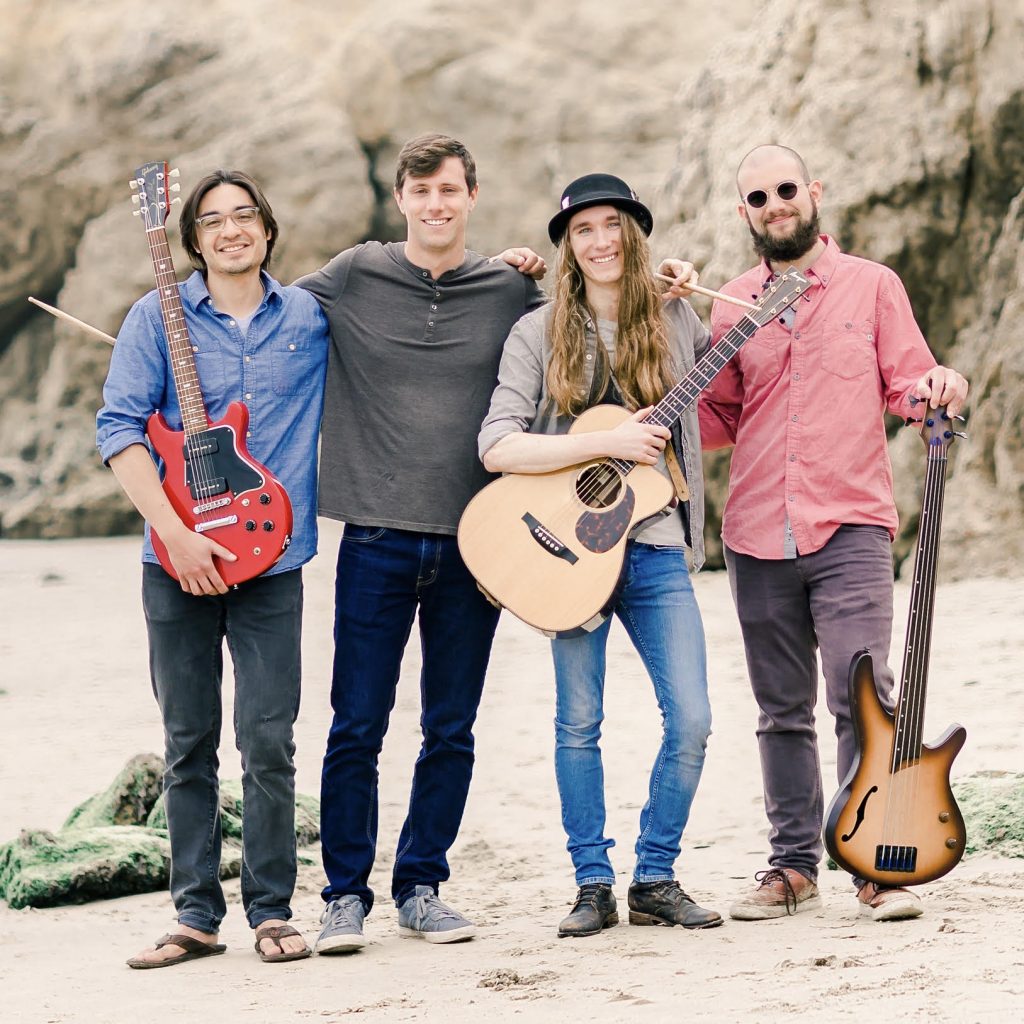
EE: So COVID-19 postponed your spring tour until the fall. What have you found yourself doing in your newfound “free time?”
SF: Like I said I’ve been doing a lot of online stuff, like live performances. Like streaming platforms. I’ve been working with Patreon and Crowdcast. Patreon has been one of the biggest things that has actually helped me stay afloat during these times. A lot of artists, most of their revenue comes from touring. If they don’t have that, they have to work something else. They can’t make a living in music if they don’t have that. So Patreon is kinda like a crowdfunding thing that creates a steady income for independent artists.
EE: What gear do you use?
SF: So we’ve got a Bourgeois Acoustic. I know, sounds super fancy. Dana Bourgeois is the creator, and it’s a small company based out of Maine. They make acoustic guitars and they’re beautiful. This specific acoustic guitar is actually custom made for me. It was a fan gift from a woman in South Africa named Jackie, and she wanted it to be a gift on behalf of all my fans. It’s able to be tuned down a full step. And it’s able to withstand the percussive work I do on my guitar, so it’s reinforced in that area. And it sounds amazing.
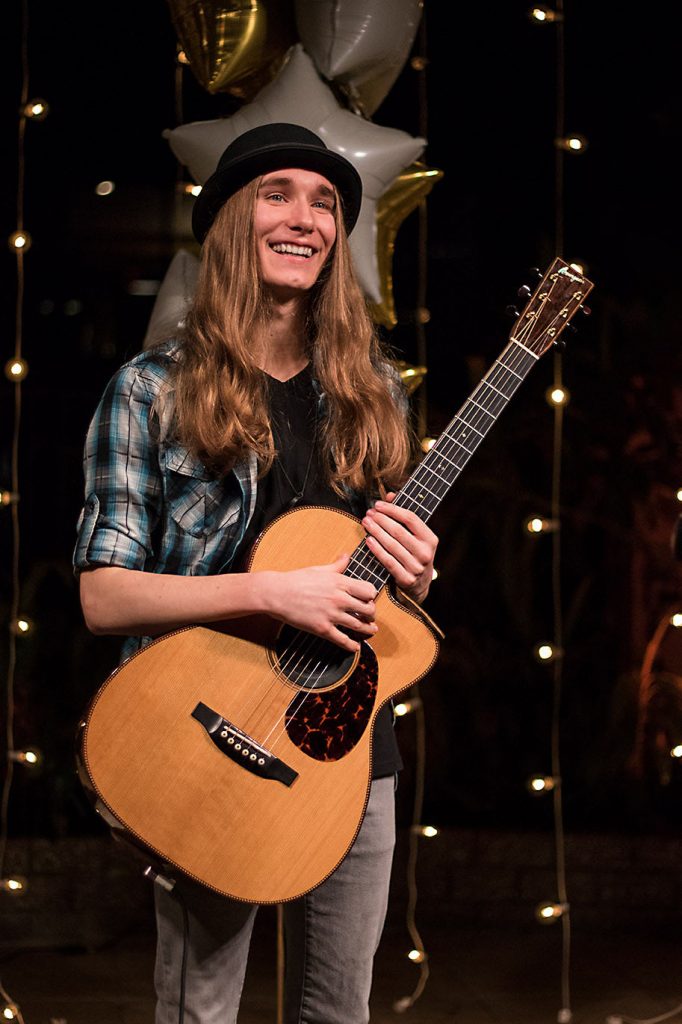
EE: It’s beautiful. Did it have abalone inlay or did I just imagine that?
SF: It has feathered inlay [along the bout and waist] and it’s got some inlay [on the fretboard]. This is the same type of inlay on their other guitars. The other person who uses Bourgeois Guitars is Ray LaMontagne. Which is how I learned about Bourgeois.
That is the only gear I consider worth talking about that I have.
EE: Do you play any other instruments?
SF: Only acoustic. I tried getting, well, I now have an electric. I’ve been trying to play electric, but it’s all guitar. So I only play guitar.
EE: What is a question you wish interviewers would ask but never do?
SF: Ay, I don’t know. That’s a difficult one. I’m passing on that question. I don’t think I have an answer for that. Apologies.
EE: No problem. So my final question is how can the Nippertown readers help you out going forward?
SF: I would say just listening to the music. You can follow me on my Instagram or Twitter. Streaming music on Spotify. Putting some of my songs on playlists also helps a lot with the algorithms on Spotify. Pushes them more up to the top if people have them on their playlists.
EE: Thank you so much for spending time chatting with me. I really appreciate it and I wish you all the best.
You can support Sawyer on Patreon here.
His newest album Flowers For You was released on May 1st of this year and can be found on your favorite streaming platform.
